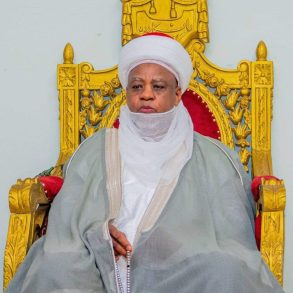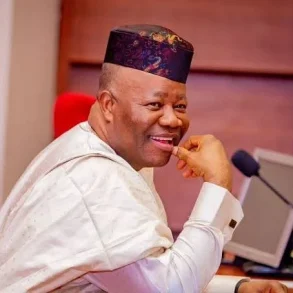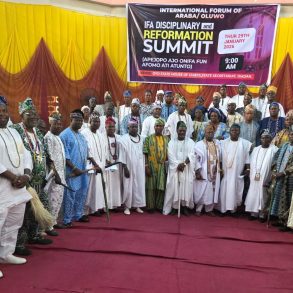By Ademola Adekusibe
September 12, 2025
Tension is brewing in Lagos following the unveiling of a ₦1.5 billion prototype palace for an “Obi of Lagos State,” a title that Yoruba monarchs and cultural leaders have described as a shocking act of trespass and provocation on Yoruba soil.
The development has triggered outrage across Yorubaland, with HRM Oba Omoto’oyosi Bayo M. Akinleye leading the charge. In a strongly worded statement, the Lagos monarch warned that such a move is unacceptable and a direct insult to the authority of the Yoruba traditional institution.
“When did Lagos stop being Yoruba land? When did the Council of Obas approve an ‘Obi of Lagos’? This is not only provocative but a blatant cultural invasion,” Oba Omoto’oyosi declared.
The monarch revealed that his palace has officially petitioned the Lagos State Council of Obas to clarify who granted Chibuke Azubike the audacity to parade himself as Obi of Lagos. He insisted that no such title exists in Yoruba history and described it as an attempt to usurp the legacy of the Oba of Lagos.
The controversy has revived memories of earlier cultural friction, including the controversial appearance of an “Eze Ndigbo of Yorubaland” at the coronation of the current Alaafin of Oyo, His Imperial Majesty Oba Abimbola Akeem Owoade I. Traditionalists have warned that the pattern shows a creeping attempt to establish parallel thrones in Yoruba land.
For centuries, the Oba of Lagos has stood as the undisputed custodian of the state’s heritage, and the Alaafin of Oyo as the supreme cultural authority in Oyo. Yoruba elders insist that the sudden emergence of an Obi of Lagos is nothing but an illegitimate project designed to undermine indigenous authority.
“This is our land. Yoruba culture is not up for negotiation. Anyone attempting to impose a foreign throne in Lagos will face stiff resistance,” Oba Omoto’oyosi warned.
The Lagos State Council of Obas is yet to issue an official position, but the uproar shows clearly that Yoruba monarchs are not willing to entertain what they describe as an assault on their ancestral sovereignty.






